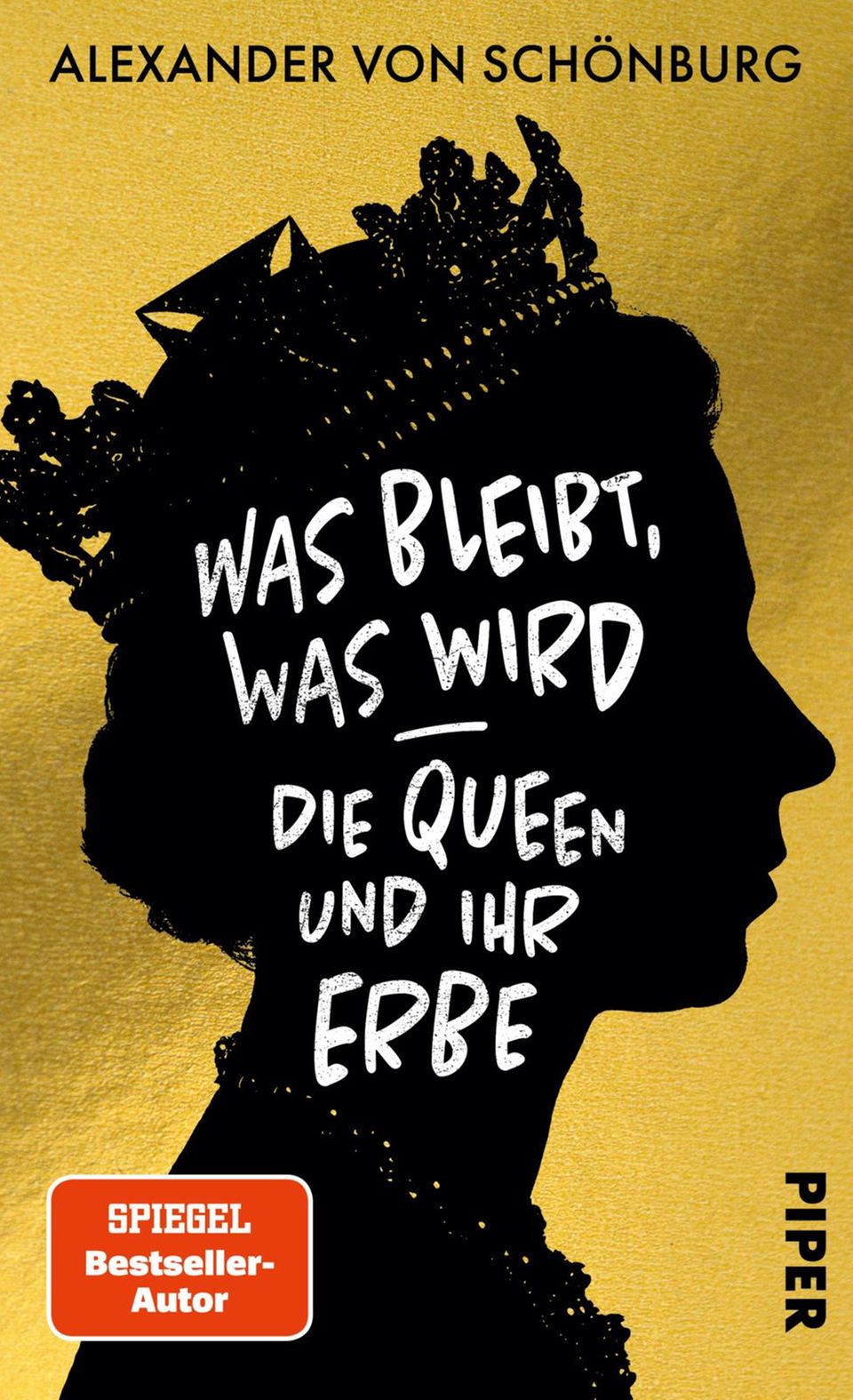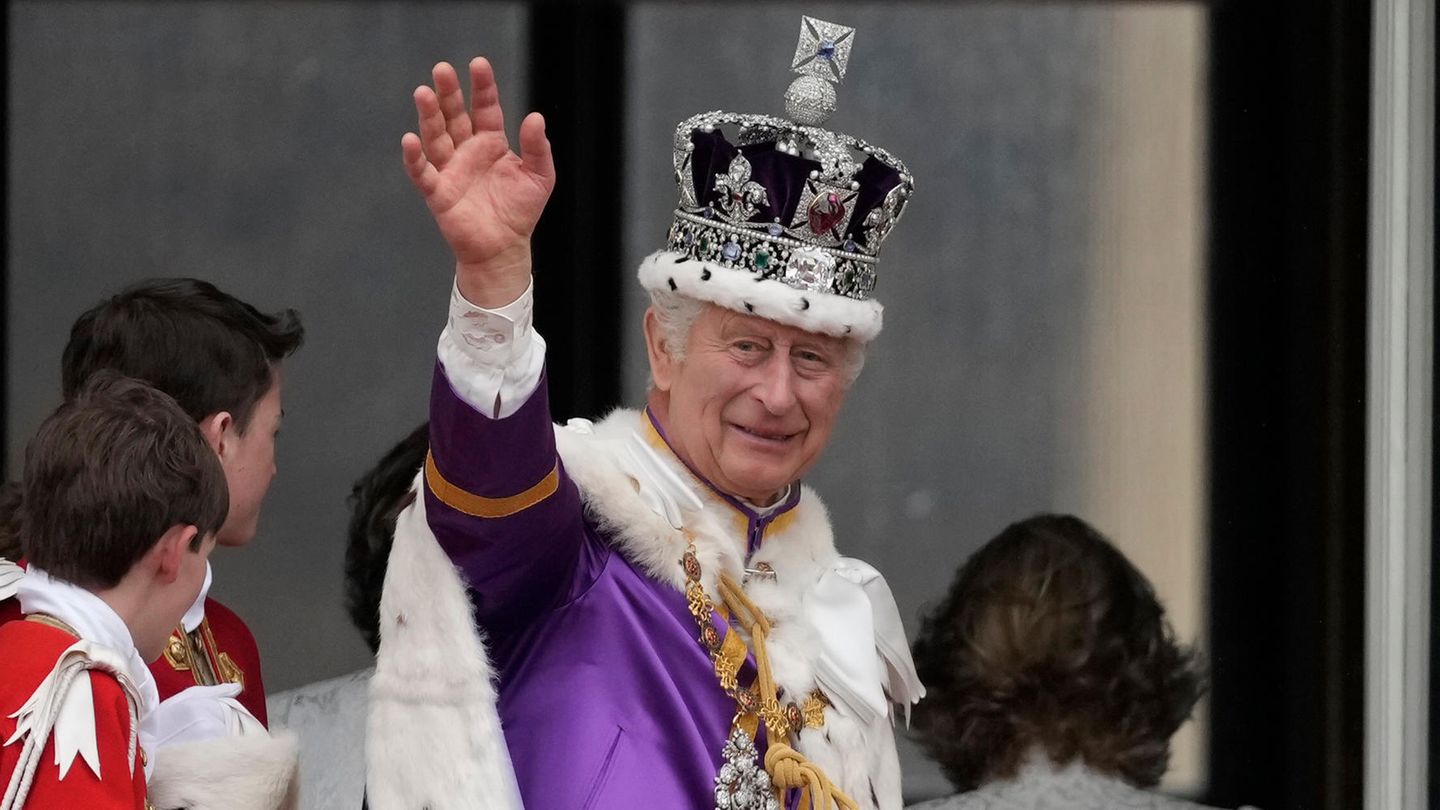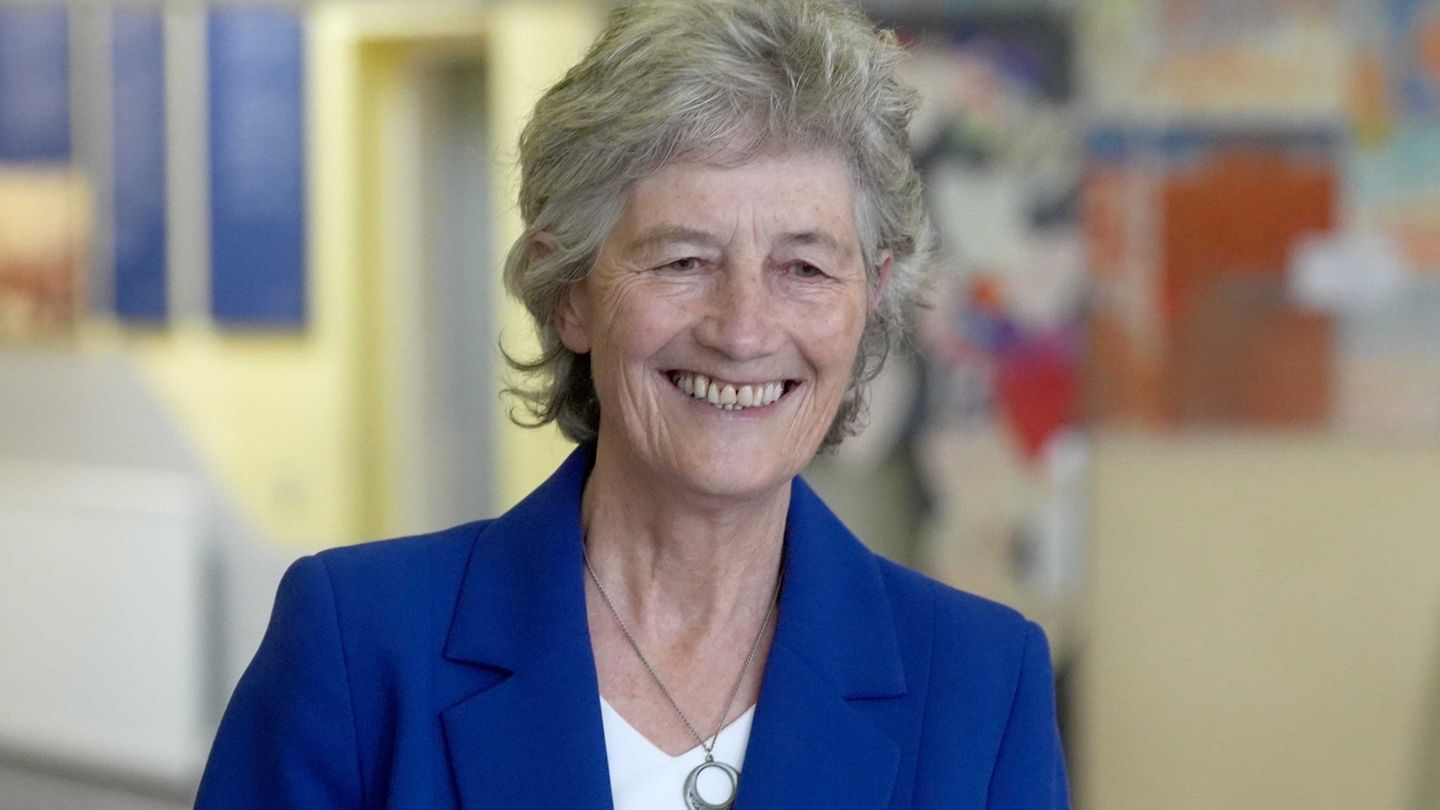A year ago King Charles III was born. crowned. After a few months in office, he received a cancer diagnosis and had to retire. A conversation with the author Alexander Graf von Schönburg about what the future of the British monarchy could look like.
Count von Schönburg, you have the coronation of King Charles intensively pursued a year ago. Out of personal interest due to your extensive relationship with the British royal family. But also because after the death of Elizabeth II you wrote a book about the Queen and her legacy. How did this elaborately staged state act affect you at the time?
Of course it was all a magnificent sight and the moment of coronation was very touching. But in hindsight, I was left with more of a feeling of concern. If you had asked me in May last year, I would have painted a rather bleak picture of the future of the British monarchy: an old, almost elderly king was crowned as the beacon of hope, in contrast to the 27-year-old, radiant Queen Elizabeth in 1953 – the discrepancy was already very visible and tangible. There was simply no sense of optimism.
Of course, an older man on the throne is not as attractive and exciting as a young woman who takes the throne in her prime. Do you think that you simply don’t trust a person in their mid-70s to have that much creative power anymore?
Exactly, and then suddenly a cancer diagnosis came a few months later. This naturally aroused sympathy and pity in many people, and it also increased Charles’ feelings’ Popularity because he was so open about it and has shown so much attitude since then. But I also believe that a sick king speaks to something much deeper in people. It comes from a rather subconscious, completely archaic idea, an almost irrational belief that the vitality of the country depends on the vitality of the king. There were ancient and pre-modern cultures that simply killed their king when he was old, out of fear that a ruler who was not healthy and strong would inevitably lead his people to ruin.
Now the king is feeling better again and the cancer treatment seems to be working. And with his tireless commitment to climate protection, Charles was way ahead of his time since the 1970s, and this is now even recognized internationally. Isn’t that enough to make him appear as a modern and active king who can still achieve a lot for his country?
I’m afraid not, even though I’m a big fan of Charles, especially because he’s a really great intellectual. When you read his book “Harmony”, in which he demands that we have to completely turn our entire consumption patterns and our use of resources upside down in order to stop climate change, this becomes clear. Or if you see which scientific organizations and think tanks he has been supporting for a long time, it’s all very well-founded, almost visionary. Nothing is said like that with him. Or the topic of interreligious dialogue. These are really things that concern him. Literacy was never a strength in the Windsor family, but Charles got that from his father. Prince Philip was also a big book lover.
Do you think he is generally underestimated?
Yes, yes. Basically, Charles is a tragic figure. He reminds me somewhat of our Emperor Friedrich III, who died of cancer in 1888 after decades of waiting for the throne after only 99 days in office. If this great thinker and liberal had had 20 or 30 years more time to fill this office, German history would probably have turned out quite differently than it did under his son Wilhelm II. Likewise, Charles will forever be in his mother’s shadow, yes simply because of the length of her reign. I would have wished him otherwise, even though we were of course grateful to the Queen for every day of her life. It is questionable whether he can now, so late in life and in poor health, still manage to make a massive difference with his climate protection revolution and other issues close to his heart.
But isn’t he loved by his subjects now? His poll numbers have risen significantly since the coronation.
Yes, but in the popularity surveys with around 70 percent he is still behind his late mother as well as William and Kate. It’s not like Charles can come up with many exciting surprises. People have known so much about him and even about his private life for a long time, unlike Elizabeth II, who was able to create a mystery around her because so little was known about her privately. That’s why it’s hard for me to imagine that the king could manage to turn things around with any action so that the people would suddenly fall at his feet. He is not loved and adored by the British like the Queen or Diana in the past. But they now have great respect for him.
How do you see this with Prince William? He’s a young heir to the throne in waiting. Is he eager to take the helm and implement his ideas?
I’m not sure about William. To be honest, I sometimes feel like William shys away from the burden of the crown. From what I hear from my friends on the island, he has the nickname “Nine to Five-Prince” in his circles. The heir to the throne is apparently someone who tries very hard to separate his “royal job” from his private life. He doesn’t like it when courtiers have control over him and his schedule, deciding for him when he has to be where, even though this has long been the custom in his family. The Queen only had her little islands of privacy, for example in the summer at Balmoral, or when she looked after her racehorses at Sandringham, I experienced that several times. But these private islands were very rare and clearly demarcated.
And William doesn’t want any of that?
Not really. He would like to sit in the kitchen-living room in Adelaide Cottage in the evenings and look after the children with his wife. He doesn’t want to know anything more about his princely duties until the next morning. As understandable as that is, I don’t know how this will work in the next few years. Because a royal office is not a position with a 40-hour week. And a king who basically doesn’t really want to be king is not an ideal choice. I’m betting that Kate, in particular, will save her William, to put it bluntly. Because she is the charismatic figure, the “man-catcher” in the royal family, with whom people can currently identify most. William looks pale next to her, I think. But the nice thing is: Unlike his parents’ couple constellation, where Diana outshone her husband at appointments with her charisma and he took it very badly, William is simply proud of his wife.
Charles III
Outfits and celebrities: The pictures from Westminster Abbey
The reactions to Kate’s video, in which she spoke so openly and touchingly about her cancer diagnosis, also showed her special charisma. In your opinion, this noticeable outpouring of love for the princess from all sides afterwards was not just due to this particular illness situation?
No, this has been developing for a long time. Kate’s video is a model of charisma on display. Kate didn’t used to be good at public speaking, but she took coaching and after 13 years in the family company, she has settled into her role, and you could see that here. I didn’t have the impression that she read the text, it seemed like it came straight from the heart. Not only did she openly talk about her diagnosis and how she and her family are dealing with it. She also, much more importantly, addressed something that is an essential part of the core brand of a royal family in times of crisis: namely the awareness that “I am suffering in an exposed place, but at the same time I know that I am suffering from a suffering that many of my fellow human beings and… ‘subjects’ also have, and in doing so make their suffering easier, so to speak, by expressing compassion and creating a feeling of mutual solidarity.

It’s interesting that a commoner in the royal family has developed into the new shining light of the monarchy. But it could also be that William develops even more charisma at the moment when he really has to step up and throws himself into the role of king with full commitment.
Possible, but I’m a bit skeptical. In any case, it requires a lot of sensitivity from the current king to maintain a good balance with William when it comes to carrying out his royal duties, especially while he and Kate are ill. As Queen Elizabeth always said, the monarch must be seen to maintain his importance, his place in people’s hearts. Charles knows this and lives it. William, on the other hand, would rather move away from constantly being seen, traveling around the country and cutting ribbons in front of new hospital wings for his reign. He would rather concentrate on a few particularly important projects that are close to his heart. He then plans to attend many other appointments via video call.
As we hear, the future William V is aiming for a much simpler coronation ceremony than his father’s, which was already more stripped down compared to 1953.
Yes, it is said that he is even considering foregoing the ritual of anointing. He is not as religious as his late grandmother or at least as spiritually inclined as his father. Of course, it’s always a challenge: Am I damaging the monarchy’s brand essence by ingratiating myself too much with the target group and becoming too modern? On the other hand, how do I preserve these fascinating medieval elements, the golden state carriage, the crown, all the archaic symbolism of a coronation that is part of the mystery of the monarchy, without it seeming anachronistic? I believe this is a constant challenge for the British monarchy, which Charles and later William and Kate will have to face when their time on the throne comes.
Source: Stern
I am an author and journalist who has worked in the entertainment industry for over a decade. I currently work as a news editor at a major news website, and my focus is on covering the latest trends in entertainment. I also write occasional pieces for other outlets, and have authored two books about the entertainment industry.




